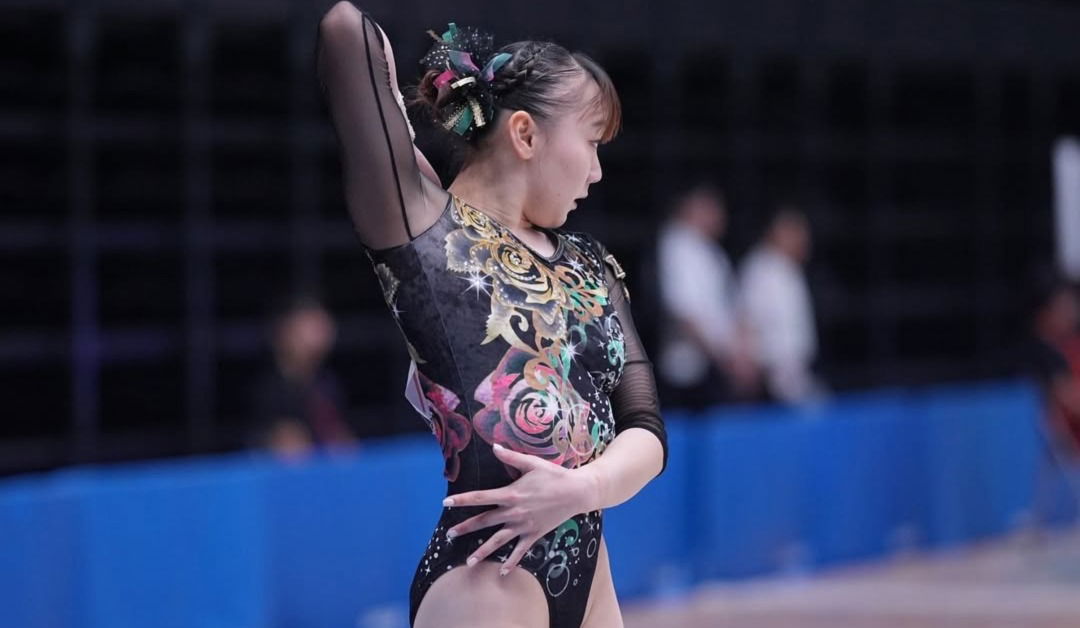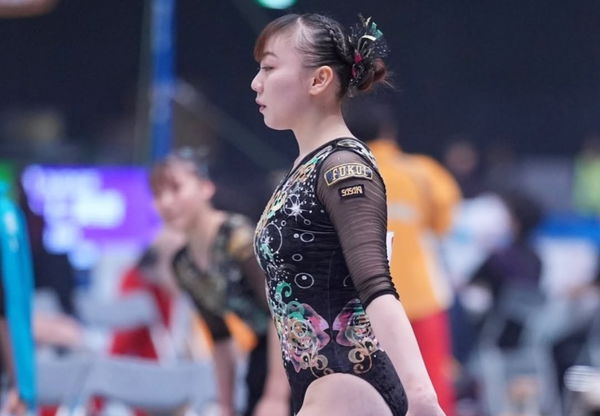
Imago
Miyata Shoko (Image Credits: Instagram/@shoko_miyata)

Imago
Miyata Shoko (Image Credits: Instagram/@shoko_miyata)
At just 20 years of age, this Japanese gymnastics phenom has lived through a controversy that would have crushed many careers before they even began. Once viewed as Japan’s most promising young gymnast, the reigning national champion found herself at the center of a storm last summer, not for anything that happened inside the gym, but for a decision made outside it. With the Olympic Games in Paris just days away, she was dismissed from the Japanese team after admitting to smoking and drinking in violation of team conduct rules. What followed was public fallout, global headlines, and a tragic return home. But this week, the star stepped back into the international arena and delivered the kind of response only the fiercest competitors are capable of.
Watch What’s Trending Now!
It had been just over a year since the incident forced Miyata Shoko, the Japanese champion, to withdraw from the Olympic roster. The Japan Gymnastics Association confirmed in July 2024 that Miyata had violated the team’s code by smoking and consuming alcohol while still underage, according to Japanese law. She left the team’s camp in Monaco and returned to Japan, where an investigation confirmed the allegations. Her personal coach, Mutsumi Harada, appeared at the press conference in tears, defending her character and pleading for understanding. No formal penalties were imposed, but the damage had been done. Miyata’s shot at Olympic glory was over before it began.
This week, on Friday, July 25, 2025, in Essen, Germany, Miyata captured gold in the all-around final at the FISU World University Games (Rhine-Ruhr 2025). This event is currently underway, running from July 16 to July 27, 2025, across various cities in Germany’s Rhine-Ruhr region, with Artistic Gymnastics events specifically held in Essen. She totaled 54.266 to defeat compatriot Mana Okamura and Taiwan’s Tonya Paulsson. The victory marked her first major international title since the controversy. Speaking after the event, she appeared composed yet candid. “It’s an honor to have a gold medal in the all-around,” she said. “I’m pretty happy that I was able to do all four routines without mistakes.”
ADVERTISEMENT
She also emphasized the difficulty of the uneven bars and balance beam, noting that many competitors faltered there. “Those were pretty important because a lot of people fell on these apparatus,” she explained. The gymnastics star further added, “I really had to stay focused on those. That was very important. I’m happy it was pretty good today.”

Imago
Miyata Shoko (Image Credits: Instagram/@shoko_miyata)
Miyata Shoko’s performance served not just as a sporting triumph but as a quiet act of reclamation. In a field once shadowed by dismissal, she now competes on her own terms. Unlike Paris, there were no high-profile cameras waiting in the mixed zone, no weight of a nation pressing down from above. But the victory in Essen may ultimately mean more. It suggests that despite the turbulence, the foundation of her gymnastics, grit, grace, and technical excellence, remains intact.
ADVERTISEMENT
Miyata Shoko battles pain, wins NHK Trophy, but her past clouded Paris dream
Few athletes have endured a journey as quietly turbulent as Miyata Shoko’s path to the Paris Olympics. In a season shadowed by both physical distress and external disruption, Miyata emerged as the most resolute figure in Japanese women’s gymnastics. Her commanding triumph at the 2024 NHK Trophy, marking her third consecutive victory, secured her a berth at the Olympic Games, validating months of unrelenting effort across Japan’s domestic circuit. Competing with a tightly bandaged hip and a visibly restricted range of motion, she carried herself through four days of demanding routines to post a combined total of 217.162, the highest among all contenders.
ADVERTISEMENT
“I wanted to finish the day with a better performance but will have to save that for Paris,” she admitted, suggesting a degree of dissatisfaction that seemed incongruous with her dominant showing. Yet it was precisely this restraint that distinguished her performance. Her self-discipline and quiet urgency stood in contrast to the uncertainty that surrounded the team selection process. With none of her current teammates having participated at Tokyo 2020, Miyata found herself at the forefront of a new, youthful squad. “I’ve had good years and bad years in my life but I hope to make this year a good one,” she said with typical understatement, as if aware that her leadership role now extends well beyond the confines of the apparatus.
Despite securing her ticket to Paris, Miyata’s Olympic bid has been marked by complications. While her consistency earned the quota, her actual participation was ultimately derailed by a tragedy that unfolded next. The events following her qualification, while not of her own making, cast a long shadow over what should have been the pinnacle of her athletic ascent. But despite all the setbacks, Miyata did not return with grand statements or gestures. She returned with execution, discipline, and a quiet determination to prove that one mistake, however costly, would not define her…
ADVERTISEMENT
ADVERTISEMENT
ADVERTISEMENT